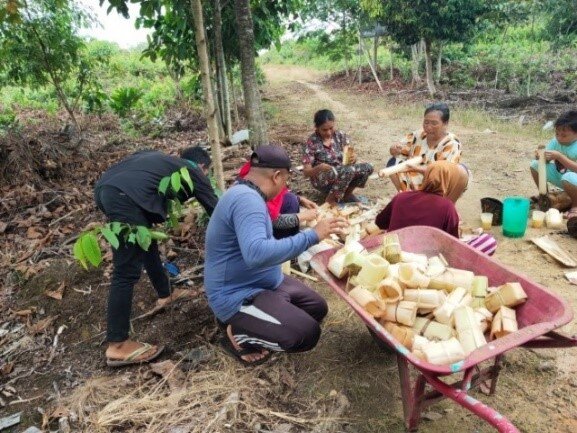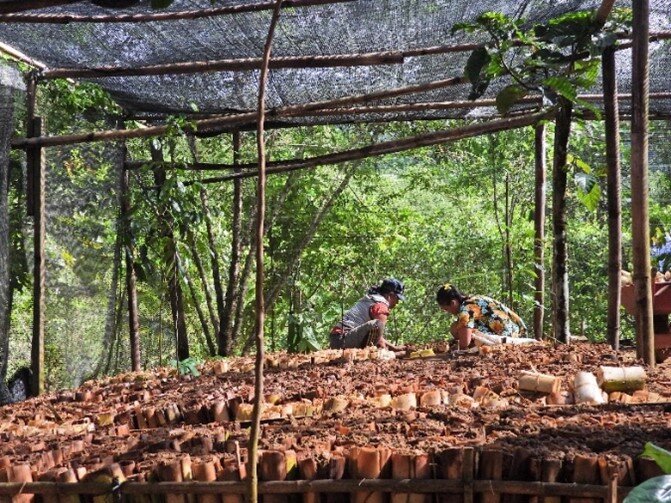By Lucy Radford | Engagement Manager
At the sites being rewilded in Sumatra, staff and volunteers use eco-polybags to house seeds and seedlings as they grow in the tree nurseries. In the past, they used plastic polybags, which protected the seedlings but created a lot of waste, which of course was not biodegradabale.
While eco-polybags made from banana trunk fibres are biodegradable and enable the new trees' roots to breathe, humidity and heat at the planting sites makes the eco-polybags start to break down much quicker than the team would ideally want. For fast-growing seedlings, it's not too much of a problem, as within a few months the seedlings can be moved out of the nursery environment and planted out in the site, where the eco-polybag degrading won't cause their roots to rot. However, it's important to grow a mix of species - including slow-growing trees, which stay in the nursery for much longer. If the eco-polybags start breaking down while in the nursery when the roots are not surrounded by the complex soil of the larger site, it can be disastrous for the delicate seedlings.
To address this problem, staff are now replacing the eco-polybags for slow-growing seedlings every three months while they're in the tree nursery. This has the added bonus of providing more work for the women's groups who are paid to make the eco-polybags. Many of the women are now using eco-polybags in their own vegetable gardens as well.
As always, thank you for your support.
By Lucy Radford | Engagement Manager
By Lucy Radford | Engagement Manager
Project reports on GlobalGiving are posted directly to globalgiving.org by Project Leaders as they are completed, generally every 3-4 months. To protect the integrity of these documents, GlobalGiving does not alter them; therefore you may find some language or formatting issues.
If you donate to this project or have donated to this project, you can recieve an email when this project posts a report. You can also subscribe for reports without donating.
Support this important cause by creating a personalized fundraising page.
Start a Fundraiser
